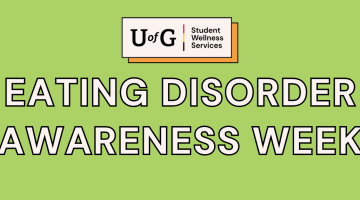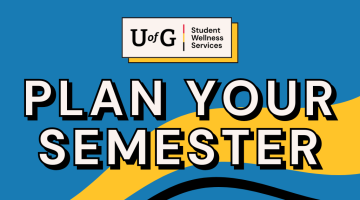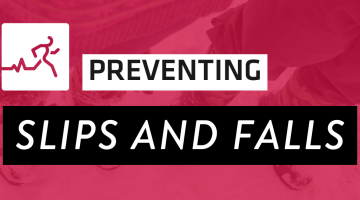Celebrating International Day of Persons with Disabilities (IDPD) 2022
![]()
First proclaimed in 1992 by the United Nations General Assembly, International Day of Persons with Disabilities (IDPD) is recognized and celebrated on December 3rd annually. The observance of the IDPD aims to promote an understanding of disability issues and mobilize support for the dignity, rights and well-being of persons with disabilities. This year's theme is "Transformative solutions for inclusive development: the role of innovation in fueling an accessible and equitable world".
What is a disability?
The University of Guelph recognizes the definition of disability as found in the Ontario Human Rights Code. This is a deliberately broad term that evolves as society’s understanding of inclusion of persons with diverse abilities also changes. Disabilities may include those that are permanent or temporary. Examples include:
- Learning Disabilities
- Attention deficit/hyperactivity disorder (“ADHD”)
- Hearing and/or vision impairments
- Autism Spectrum Disorder
- Chronic medical conditions
- Recovery from a significant injury
- Dexterity or mobility impairments
- Acquired brain injuries
- Mental health conditions
- Acquired brain injuries, including concussions
How does the University of Guelph support students with disabilities?
The University of Guelph is committed to creating an equitable learning environment and supports students with disabilities through Student Accessibility Services (SAS) in the Student Wellness Department. SAS helps students who experience disabilities to experience full and equitable participation in academic life and strives towards creating a barrier-free environment where all students have the opportunity to achieve their potential.
The primary mandate of SAS is to help students with academic accommodations and to remove structural barriers when a disability is affecting the student's academic functioning. The required accommodations vary from person to person and situation to situation. Each requires an SAS advisor who can work collaboratively with students and instructors to determine what is needed. Academic accommodations may include modifications to academic policies, procedures, requirements or the educational environment to facilitate access to learning and an equitable opportunity to demonstrate learning outcomes.
A broad range of accommodations are available at the University of Guelph, and a few highlights include:
- Alternate scheduling for the completion of course, project, thesis work, or examinations;
- Extensions to program completion time limits;
- Use of assistive technology in the classroom, laboratory, examinations and fieldwork;
- Access to alternate format text for written materials;
- Use of sign language interpreters, educational assistants, and volunteer note-takers in the classroom;
- Use of audio and/or visual recording for personal study;
- Support for examinations including extra time, a private or semi-private room, use of a computer, assistive software or word processor, or access to a reader or scribe as needed;
- Accessible furniture and seating in the classroom;
- Adjustment to academic loads.
In addition, the SAS team provides several programs to support students, including one-on-one coaching on learning strategies and support with disability-related problem-solving. We also offer programs such as Learning to Bounce (mental health resiliency support program) and both individual and group-based support for autistic students. In addition, peer-based support is available through SAS and an orientation program for disabled students called START Accessible.
To learn more about SAS’s various support services, please visit our website wellness.uoguelph.ca/accessibility or contact us via phone at 519-824-4120 ext. 56208, or email accessibility@uoguelph.ca
Recognizing Disability-Inclusive Innovation at the University of Guelph
In honour of the 2022 global observance to commemorate the International Day of Persons with Disabilities overarching theme of innovation and transformative solutions for inclusive development, we're highlighting the three ways in which SAS supports the following disability-inclusive innovation themes:
Innovation for disability-inclusive development in education technology
- Lecture capture technology retrofitted into classrooms (Summer 2021)
- Kurzweil 3000 site license means this software is available to anyone who wants it (see Library Accessibility Services)
- Digital Accessibility Resource Centre (DARC) provides guidance for accessible digital communications
- Instructors who are choosing new technologies for teaching and learning can have the technology assessed for accessibility (and privacy) by Open Learning & Educational Support.
- Automated Quiz Extension Tool provides data from SAS about students’ accommodations to CourseLink for certain types of assessments.
- Library Accessibility Services will assist with providing accessible formats of video that has been produced by third parties from outside of the university for use in courses.
Innovation for disability-inclusive opportunities
- SAS Faculty Liaison is available to consult with instructors about accessibility and accommodation procedures for creating an inclusive space for students with disabilities.
- Universal Design for Learning (UDL) is integrated into all Distance Education courses
- The Office of Teaching and Learning facilitates workshops and conferences for instructors about how to integrate accessibility into their courses (e.g. Innovation in Teaching and Learning Conference)
- Collaboration between SAS and Admission Services to promote accessibility in admission processes (e.g. Supplemental Information Form for Students with Disabilities or SIF-D)
- Experiential Learning Hub facilitates connections with disability-specific organizations such as Specialisterne and Lime Connect, as well as coaches students on how to negotiate accessibility in the workplace
- Many student services and faculty office hours provide the option to meet either on-campus or virtually
Innovation for disability-inclusive spaces
- BlindSquare Initiative: The University of Guelph was the first Canadian post-secondary institution to install a complete electronic wayfinding system called BlindSquare to help blind and visually impaired people find their way around campus, both inside and out.
- SAS consults with colleges and departments about accessible and inclusive academic requirements
- New entrance to the Library was designed to promote accessibility
- Accessibility has been integrated into the design of the MacKinnon renovation project
- Annual Guelph Accessibility Conference
- Accessibility was a central consideration for the Provost’s Task Force on Pedagogical Innovation, which has given rise to the University Teaching Leadership Fellows and the University of Guelph Teaching and Learning Network.
- The University of Guelph is an active member of the Inter-University Disability Issues Association (IDIA)
- Although not yet required, Diversity and Human Rights has already started facilitating discussions about how to implement the recommendations for the new post-secondary education standard under the Accessibility for Ontarians with Disabilities Act (AODA).
Sources:
United Nations: International Day of Persons with Disabilities (IDPD) 2022



